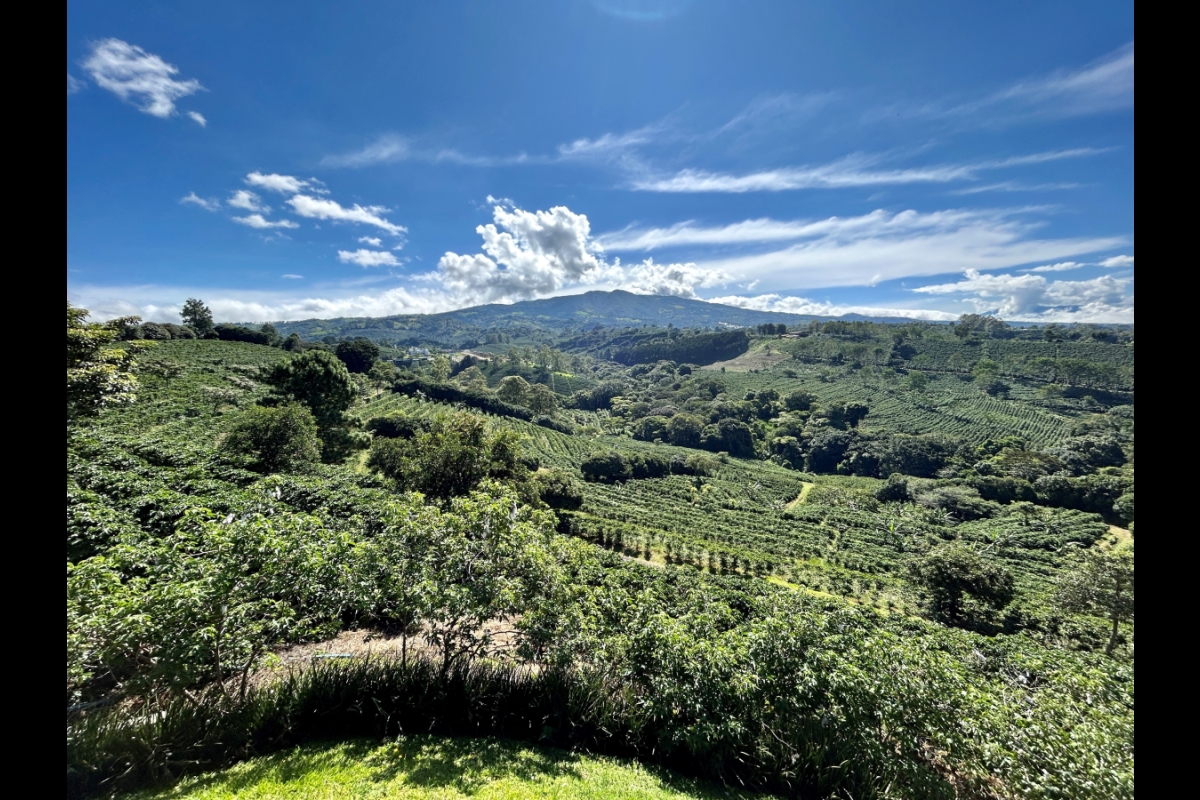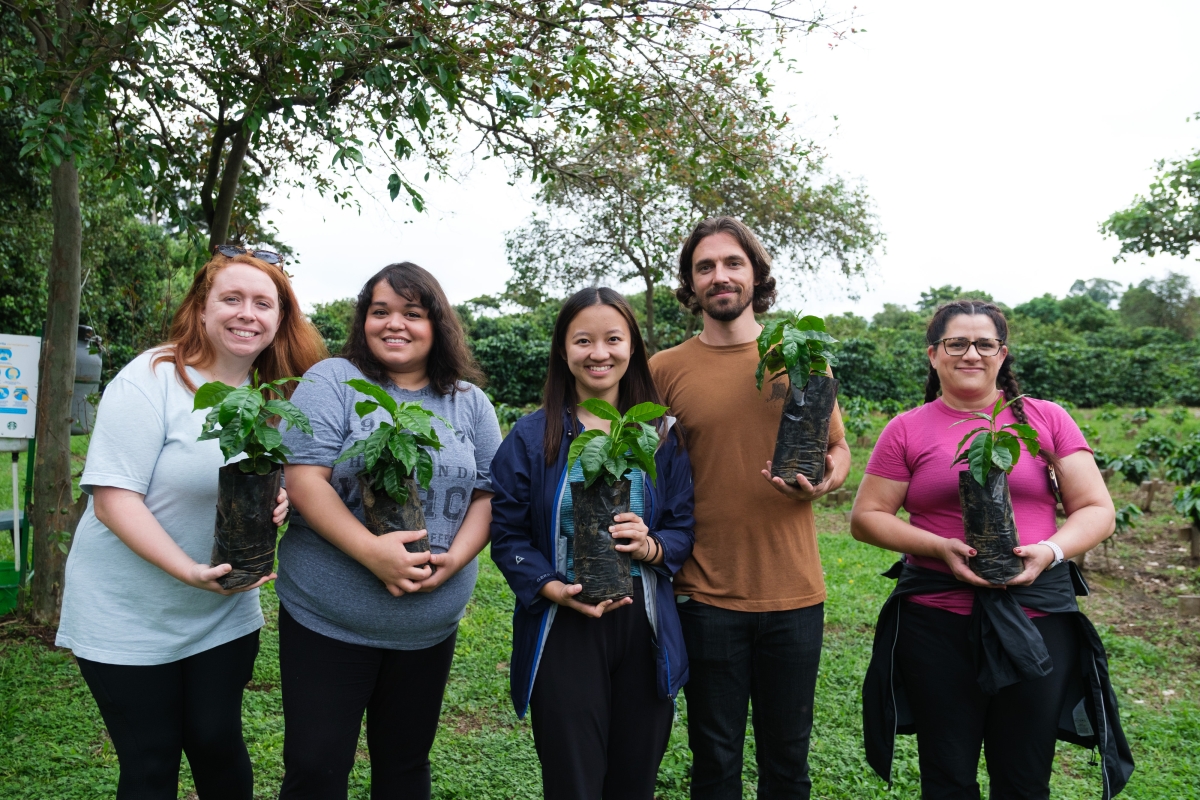Starbucks partnership offers new global experiences for students to study coffee, sustainability in Costa Rica
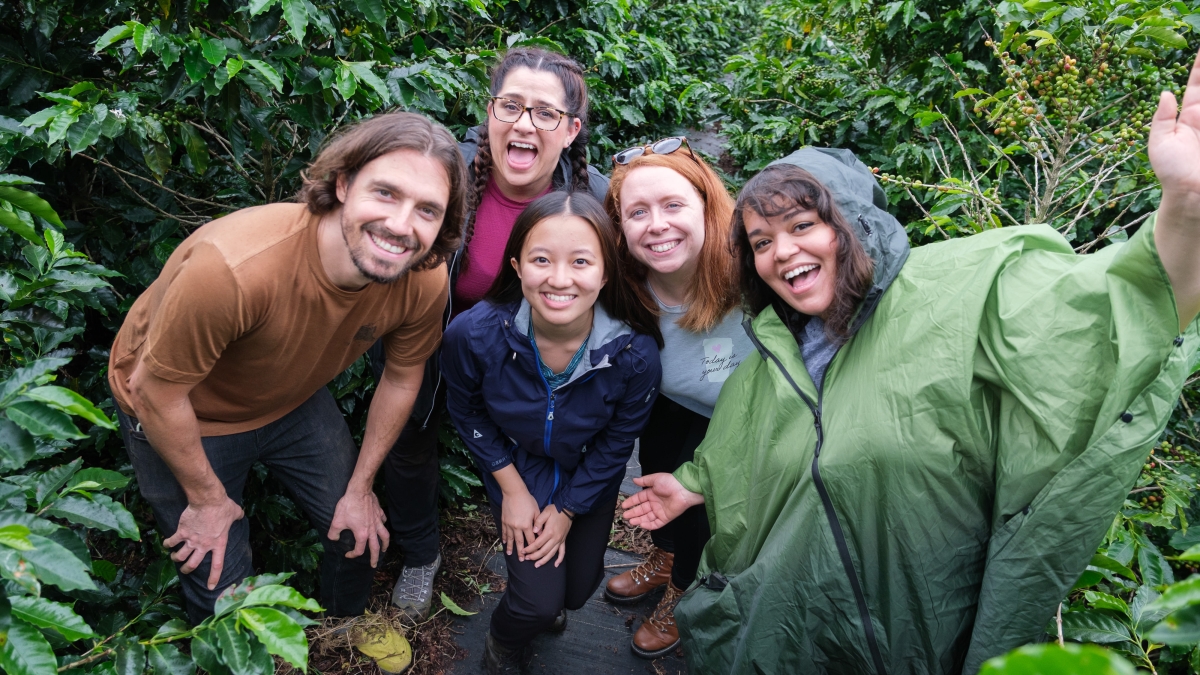
ASU student ambassadors, including Katie Hogan (back, in glasses), on the October 2023 visit to Costa Rica. Photo courtesy the ASU Global Institute of Sustainability and Innovation
Before her trip to Hacienda Alsacia, Starbucks' first and only company-owned-and-operated coffee farm, Katie Hogan thought she knew a lot about coffee.
A graduate student in Arizona State University’s College of Global Futures, Hogan had worked as a Starbucks licensee partner and brand standards leader for years. But during a recent student ambassador trip to Costa Rica, where Hacienda Alsacia is located, Hogan was able to experience firsthand what it was like to be on the coffee farm, pick coffee cherries and taste coffee in the very place it was grown.
“This trip has changed my perspective on coffee, Starbucks and the deeper meaning of sustainability,” Hogan said. “I used to take these things for granted, but this immersion has reinforced why I chose to get a master’s degree in sustainable food systems.”
Now, ASU's School of Sustainability, within the College of Global Futures, is offering a new study abroad program for students to immerse themselves in rich Costa Rican culture and learn about global coffee sustainability firsthand at Hacienda Alsacia. This international experience runs from Dec. 15–22, and participants will have plenty of opportunities for hands-on learning at the farm.
The program will be led by Dave White, director of ASU's Global Institute of Sustainability and Innovation (GIOSI), and Lauren Bataska, GIOSI program manager.
“Students (in the program) will have the unique opportunity to experience the origins of coffee and to understand the journey from seed to cup," White said. "From the cafe and visitor center, with sweeping majestic views, to the farm and nursery, to the wet and dry mills, students will see firsthand the thoughtful attention and care taken to ensure coffee sustainability.”
In addition to being an incredible place to learn about coffee development, sustainable agriculture and future-proof coffee innovation, Hacienda Alsacia is the planned site of the Starbucks sustainability learning and innovation lab. The new lab will be a hub for both hands-on and virtual learning opportunities for Starbucks partners, industry leaders, students and researchers.
The study abroad program highlights coffee sustainability and the looming challenges facing the industry due to climate change, including decreased crop yields and vulnerability to threats like disease and pests. In addition to exploring Starbucks' research on creating scalable solutions that could be implemented across the coffee belt, students will get to experience a behind-the-scenes tour with leading experts in coffee sustainability, plant and dedicate a coffee bush, enjoy a coffee tasting and tour important natural and cultural sites around Costa Rica’s nearby capital, San José.
While the program focuses on coffee, Hogan sees it as a transdisciplinary experience that offers even more insight into our natural world.
“It’s so much more than just growing coffee,” she said. “It’s having a relationship with the land, listening to it and learning from it."
The program is open to students from any major who meet the admission criteria and GPA requirements. More information on the program and instructions to apply can be found on the ASU Global Education website.
More Environment and sustainability
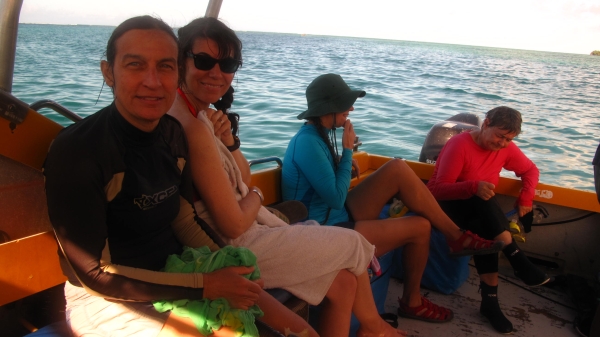
Assessing the red alert on corals
As our planet continues to warm, rising ocean temperatures threaten coral reefs across the globe. But not all corals are created equal, and some may be able to withstand higher temperatures or longer…
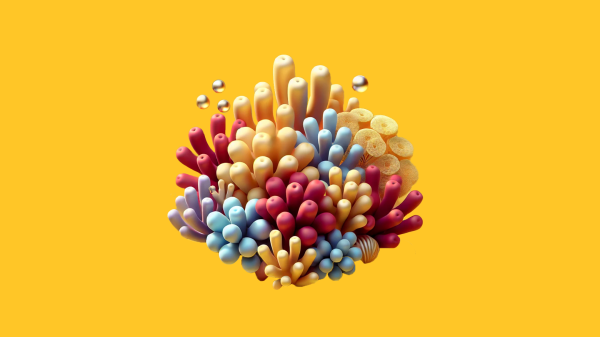
Designing a more sustainable future with AI
Editor's note: This feature article is part of our “AI is everywhere ... now what?” special project exploring the potential (and potential pitfalls) of artificial intelligence in our lives. Explore…
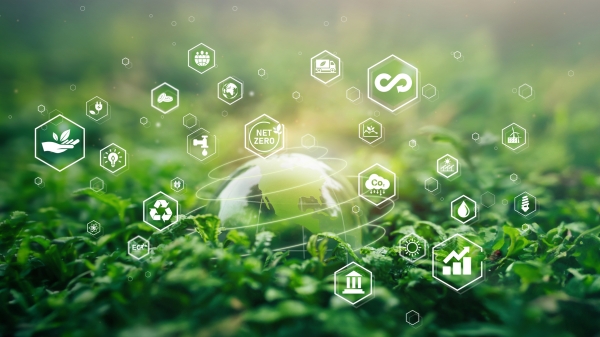
ASU researchers incorporate data into decision-making for conservation efforts
Leah Gerber sees conservation as a crisis discipline — the work involved tends to be reactive, with the engaged decision-makers rapidly basing their guidance on the available information.“When you go…
